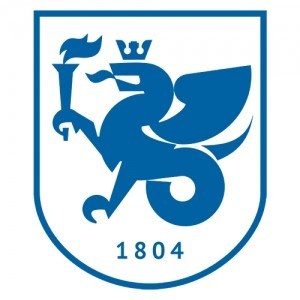Photos of university / #ucl
This programme is intended for students who want to pursue careers or further study in pharmacology or related disciplines. It offers an additional year on top of the Pharmacology BSc in which to undertake your own major, cutting-edge research project, alongside advanced modules.
In each year of your degree you will take a number of individual modules, normally valued at 0.5 or 1.0 credits, adding up to a total of 4.0 credits for the year. Modules are assessed in the academic year in which they are taken. The balance of compulsory and optional modules varies from programme to programme and year to year. A 1.0 credit is considered equivalent to 15 credits in the European Credit Transfer System (ECTS).
The subject of pharmacology is immensely broad and covers the areas of physiology, chemistry, neuroscience, biochemistry and genetics. As a result, some of your modules will be taken with other Life Sciences students and will draw on expertise from across the faculty.
In the first year, all modules are compulsory, giving you a sound knowledge of the discipline and enabling you to identify your own strengths and interests. Year two is mainly comprised of compulsory modules, but by the third year you will take only one compulsory module, leaving you free to choose from a wide range of specialist options.
MSci students also undertake a literature-based research project in their third year, whilst in year four, a compulsory, laboratory-based research project accounts for 50% of the year's work. You may find this particularly helpful in making choices about your future career, and whether you would like to pursue postgraduate study.
You may also apply for a 'sandwich' year in your programme, taken between years two and three, spending your time in the pharmaceutical industry or another pharmacology-related area. These are offered on a competitive basis, but contacts between our staff and colleagues in industry also open up many opportunities.
A levels
Grades
AAA-AAB
Subjects
Chemistry required plus one from Biology, Mathematics or Physics.
GCSEs
English Language and Mathematics at grade B. For UK-based students, a grade C or equivalent in a foreign language (other than Ancient Greek, Biblical Hebrew or Latin) is required. UCL provides opportunities to meet the foreign language requirement following enrolment, further details at: www.ucl.ac.uk/ug-reqs
IB Diploma
Points
36-38
Subjects
A total of 17-18 points in three higher level subjects including Chemistry and one subject from Biology, Mathematics or Physics, with no score below 5.
The University College London offers various funding options for students enrolled in the Pharmacology MSc programme. Prospective students are encouraged to explore a range of scholarships, bursaries, and financial support schemes available through the university and external organizations. UCL provides several scholarships specifically aimed at postgraduate students, including departmental awards, faculty-specific scholarships, and excellence bursaries, which can significantly reduce tuition fees. Additionally, students may apply for the UCL Graduate Support Bursary, designed to assist those demonstrating financial need. The university also offers prestigious scholarships such as the UCL Pharmacology Department Scholarships, which are awarded based on academic excellence and research potential. For international students, there are specific funding opportunities, including the Commonwealth Scholarships and Chevening Scholarships, which can help offset the costs of study abroad. Moreover, students are encouraged to seek external funding sources, including research councils, government schemes, and private foundations, which often support students undertaking research-based postgraduate programmes. Work-study options may also be available, permitting students to work part-time during their studies to finance their education. UCL provides comprehensive guidance and resources through its Financial Support Office, helping students identify suitable funding sources and navigate the application processes. It's important to note that the cost of attendance includes tuition fees, accommodation, living expenses, and study materials, and students should plan their budget accordingly. International students should consider additional expenses such as health insurance and visa fees. Overall, while the university offers a variety of funding options, applicants are strongly advised to start their search early and prepare detailed applications to maximize their chances of obtaining financial aid. More detailed information, eligibility criteria, and application procedures are available on the official UCL website and through departmental communications.
The BSc Pharmacology program at University College London (UCL) provides students with a comprehensive understanding of the biological and chemical processes that govern drug actions and their effects on the human body. This programme is designed to equip students with both theoretical knowledge and practical skills, enabling them to explore the mechanisms of drug action, development of new pharmaceuticals, and the therapeutic applications of medicines. The curriculum covers a wide range of topics including molecular pharmacology, neuropharmacology, cardiovascular pharmacology, and the pharmacokinetics and pharmacodynamics of drugs. Throughout the course, students engage in laboratory-based practicals, coursework, and research projects that foster hands-on experience and critical thinking. The programme also emphasizes the importance of ethical considerations in drug development and testing, as well as the regulatory landscape governing pharmaceuticals.
Students have access to state-of-the-art laboratories and facilities, and the programme is taught by internationally renowned academics and researchers in the field of pharmacology. UCL’s location in London offers unique opportunities for collaboration with the pharmaceutical industry and medical institutions, enhancing the learning experience through internships, placements, and networking events. The course encourages the development of transferable skills such as analytical thinking, communication, teamwork, and problem-solving, which are highly valued across careers in healthcare, research, and the pharmaceutical industry. Graduates of this programme often pursue careers in pharmaceutical research and development, clinical research, regulatory agencies, and academia, or continue their studies at postgraduate level for specialization. The programme aims to produce well-rounded professionals ready to contribute to advancements in medicine and healthcare through innovative research and development.









